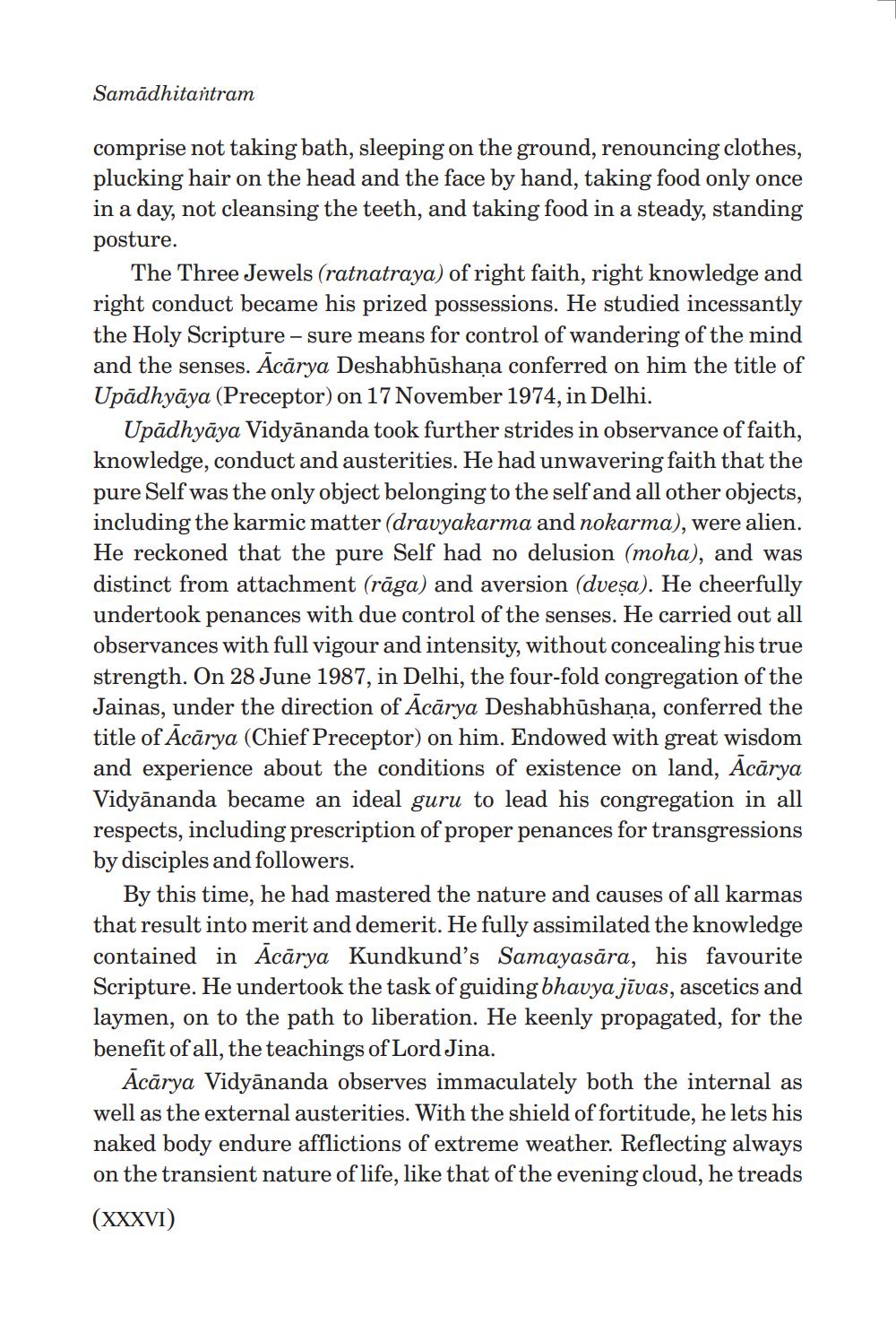________________
Samādhitantram
comprise not taking bath, sleeping on the ground, renouncing clothes, plucking hair on the head and the face by hand, taking food only once in a day, not cleansing the teeth, and taking food in a steady, standing posture.
The Three Jewels (ratnatraya) of right faith, right knowledge and right conduct became his prized possessions. He studied incessantly the Holy Scripture - sure means for control of wandering of the mind and the senses. Ācārya Deshabhūshana conferred on him the title of Upādhyāya (Preceptor) on 17 November 1974, in Delhi.
Upādhyāya Vidyānanda took further strides in observance of faith, knowledge, conduct and austerities. He had unwavering faith that the pure Self was the only object belonging to the self and all other objects, including the karmic matter (dravvakarma and nokarma), were alien. He reckoned that the pure Self had no delusion (moha), and was distinct from attachment (rāga) and aversion (dveşa). He cheerfully undertook penances with due control of the senses. He carried out all observances with full vigour and intensity, without concealing his true strength. On 28 June 1987, in Delhi, the four-fold congregation of the Jainas, under the direction of Acārya Deshabhūshana, conferred the title of Acārya (Chief Preceptor) on him. Endowed with great wisdom and experience about the conditions of existence on land, Acārya Vidyānanda became an ideal guru to lead his congregation in all respects, including prescription of proper penances for transgressions by disciples and followers.
By this time, he had mastered the nature and causes of all karmas that result into merit and demerit. He fully assimilated the knowledge contained in Acārya Kundkund's Samayasāra, his favourite Scripture. He undertook the task of guiding bhavya jīvas, ascetics and laymen, on to the path to liberation. He keenly propagated, for the benefit of all, the teachings of Lord Jina.
Acārya Vidyānanda observes immaculately both the internal as well as the external austerities. With the shield of fortitude, he lets his naked body endure afflictions of extreme weather. Reflecting always on the transient nature of life, like that of the evening cloud, he treads (XXXVI)




